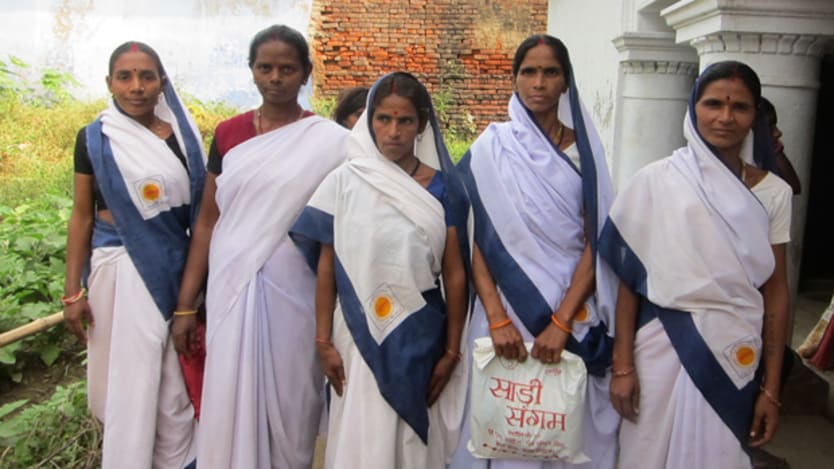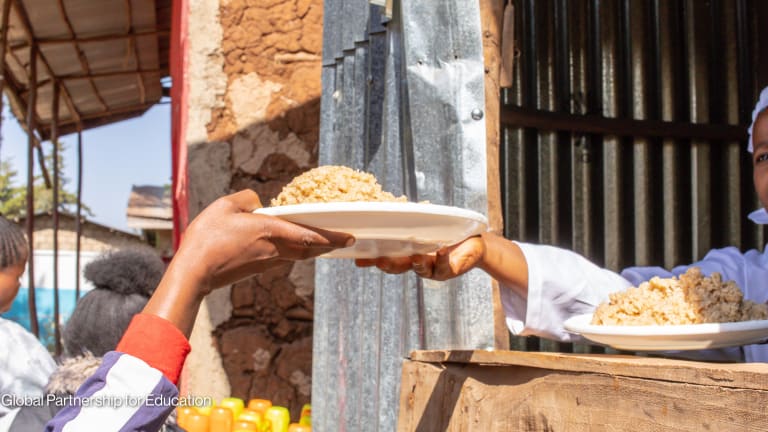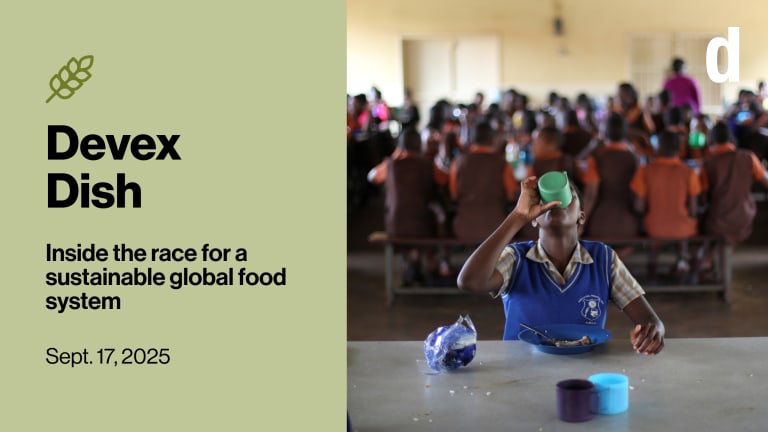
While India’s economic boom over the last two decades has lifted markets and millions out of poverty, the progress has been starkly inequitable.
See more #FeedingDev articles:
• 4 issues that matter in nutrition
• The nexus of agriculture and nutrition
• Nutritional intake patterns: Implications for food security?
• Food justice is about more than food security and nutrition
High inflation and food prices have pushed a fifth of the country’s population to the limits of desperation. Young children and vulnerable women have been hit the most; malnourished and anemic, each day is a struggle for them, with no certain outcome.
According to the latest national level survey conducted in 2007, around 44 percent of Indian children below 5 were undernourished. In some states, this figure was as high as 60 percent. Although seven years have passed since the survey, the situation has not changed much. In absolute numbers, there are more undernourished children in India today than ever before, facing the risk of early death and a bleak future as unproductive adults.
This paradox has baffled social scientists and development professionals. For years, governments have put their weight behind the Integrated Child Development Services, a mammoth national program started in 1975 to improve the health of children, along with pregnant and lactating mothers. However, the program has not yielded the desired results, as it hinged on the premise of providing food and did not emphasize nutrition.
Even though greater clarity has emerged on the multiple and complex factors that impact child health, a critical reason for continued rates of malnutrition is that most food programs do not focus on the nutrition needs of a child. The cornerstone of ICDS is the anganwadi, village-based feeding and learning centers that provide children with low-budget meals, but here the problem is that these meals rarely contain the essential vitamins and minerals that children need.
And while the focus of the program was often on the quantity of food, other underlying causes of malnutrition — like diarrhoea and other common child illnesses — were not being addressed. A strategy that should have been resting on multiple pillars — such as the nutritional quality of food, diarrhoea management, provision of safe water, hygiene and sanitation awareness and community education — has been balancing precariously on the sole pillar of provision of food, largely made up of cereals and devoid of critical nutrients.
Certain state-specific initiatives, like the Childhood Diarrhoea Management Program, have proven to be effective and must be replicated across the country. The Micronutrient Initiative has partnered with governments in Gujarat, Bihar and Uttar Pradesh, all states with high levels of undernourishment in children, to strengthen the CDMP by strengthening treatment of the disease with zinc and oral rehydration salts. Impact studies have shown that the program has benefited poor children and there is a greater acceptance for it among rural populations.
There is expertise, evidence and resources available in India to address children’s malnutrition. This is a war that the country has fought half-heartedly so far, and we have let down far too many young children who now find it difficult to stand at par with their more fortunate peers. We need an urgent change, a change in intention and a change that has the power to transform young lives.
The new government formed earlier this year was voted into power on the promise of changing the fate of the nation, and has announced its intention to deal with India’s crippling problem of undernutrition through a comprehensive national program. It is imperative that this nascent political will is not allowed to wither away in the face of shifting and multiple priorities.
There are three critical issues which need unstinted attention if we are to overcome malnutrition in the coming years.
1. Increasing the understanding of malnutrition among people, including politicians. People need to know why it is important to invest in the health of their children and why this should be their primary demand from the government. Politicians need to understand the human and financial price the nation pays to leave its children uncared for. Only when malnutrition, driven by demand, becomes part of a populist agenda, will political resolve begin to make a difference.
2. Corruption has been eating away at the foundation of many development programs, which has resulted in truncated allocations passing down to children. It is crucial that all stakeholders join hands and offer viable solutions. A strong and unforgiving stand against corruption is critical to the success of child-friendly initiatives.
Join the conversation at our LinkedIn group!
3. All development partners need to come together to identify and present what has worked and what has failed in alleviating malnutrition in India. Along with the larger picture of failure, there are also pockets where success shines. Advocating these successes holds the key to informing governments so that political will can be strengthened and moulded into adopting these models more widely.
It may not be easy to ensure that one-sixth of the world’s children and a third of the world’s undernourished children living in India remain healthy, but it is certainly possible. The answer lies in having strong political will. That is where all strategies, solutions, budgets and results stem from.
Want to learn more? Check out Feeding Development's campaign site and tweet us using #FeedingDev.
Feeding Development is an online conversation hosted by Devex in partnership with ACDI/VOCA, Chemonics, Fintrac, GAIN, Nestlé and Tetra Tech to reimagine solutions for a food-secure future from seed and soil to a healthy meal.








